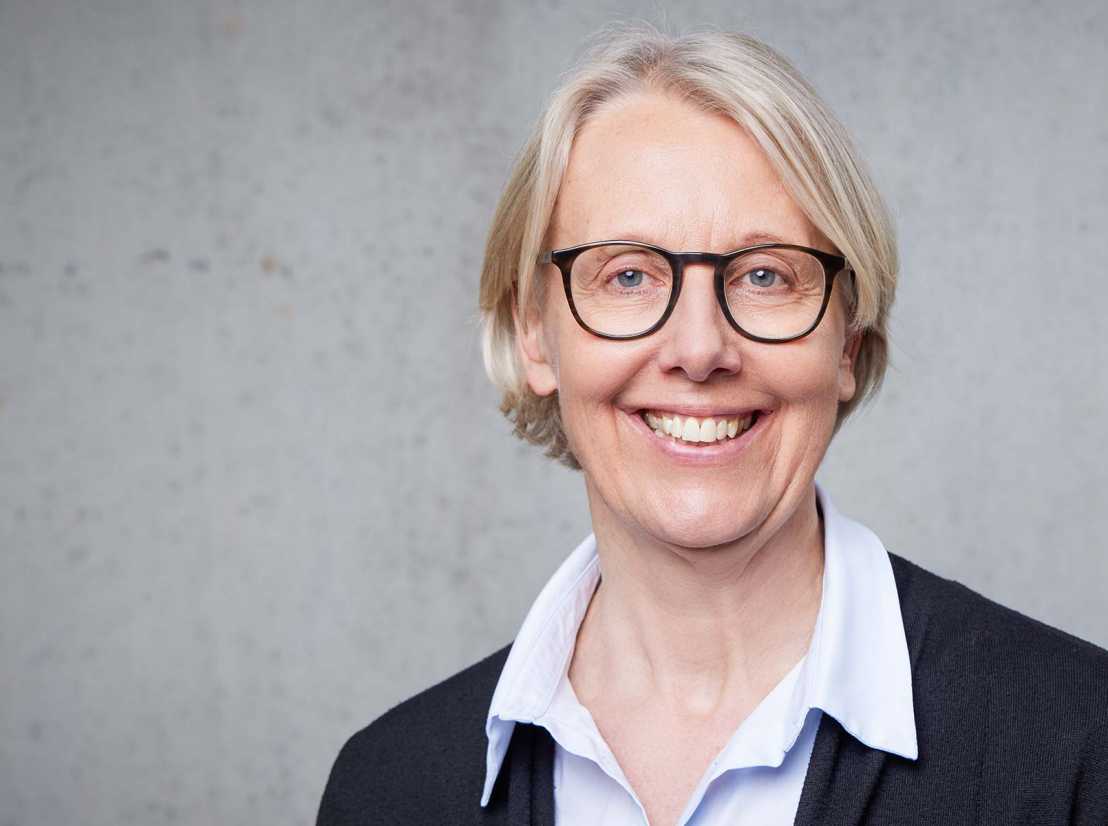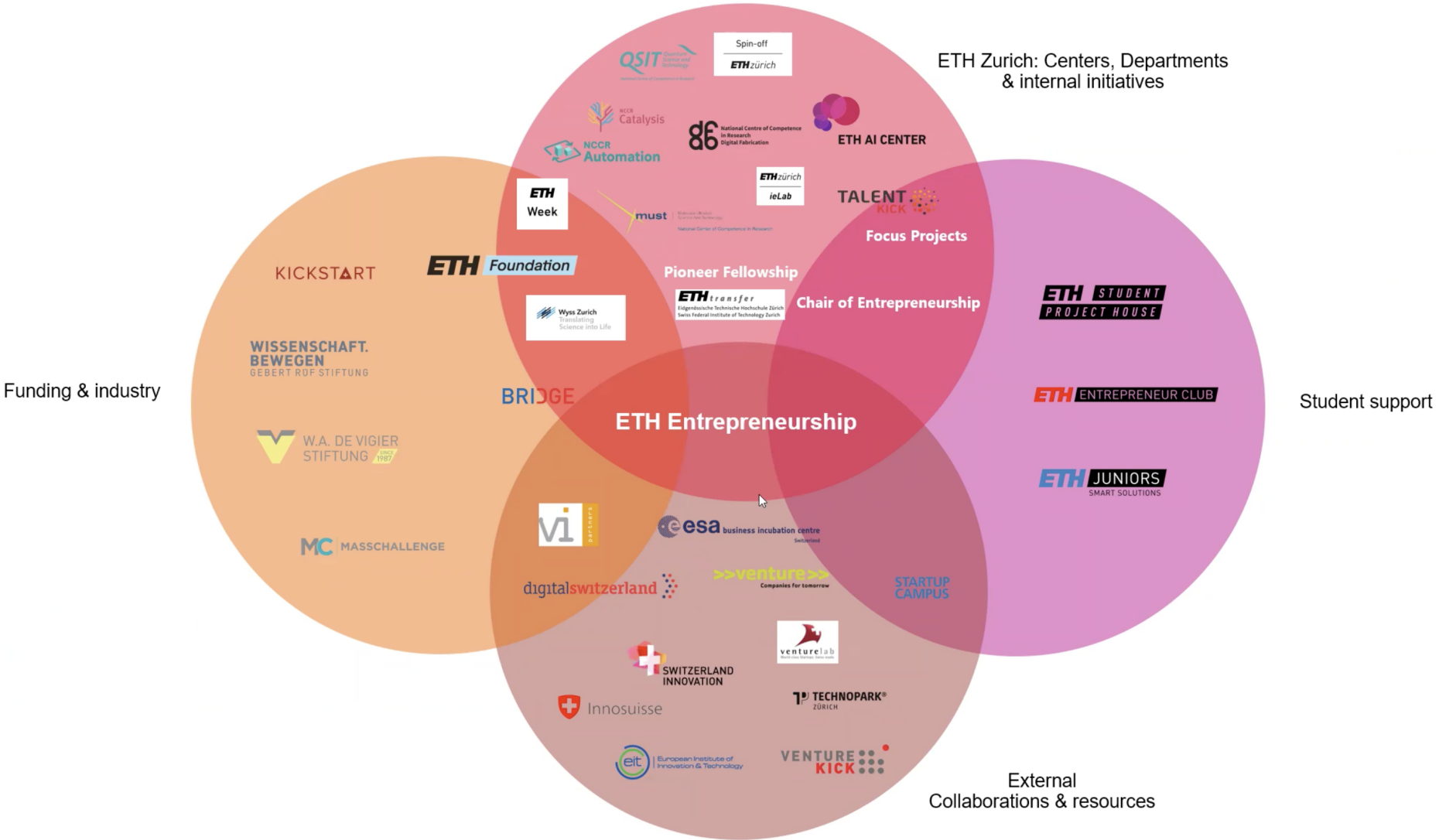“A lot of entrepreneurial mindset is already lived at D-BSSE”
The new ETH Entrepreneurship group consolidates the entire entrepreneurial ecosystem within and outside ETH Zurich. In an interview, its head Marjan Kraak puts a spotlight on entrepreneurship at D-BSSE and gives advice on how to become an entrepreneur and which challenges might arise when spinning out a research collaboration with industry.

What is ETH Entrepreneurship doing?
We are there to help all potential entrepreneurs in bringing research to the market, to transform it into a product or a service or a business etc. This is what our team ETH Entrepreneurship is all about.
Let me start with an overview from BSSE because your department is already very entrepreneurial. You have many spin-offs that came out of D-BSSE so far, there were also some Pioneer Fellows in the past, and you have a lot of collaborations with pharmaceutical partners - so, you are pretty much a ‘Vorzeige-Department’ as I would call it in German, a flagship department serving as a good example, where a lot of entrepreneurial mindset is already lived and put into action.
Can you provide some statistics and give some examples of entrepreneurship at D-BSSE?
There is a list of 16 official ETH spinoff companies that came out of D-BSSE so far. Most of those spinoffs are in the field of ‘biotech/pharma’, but also in ‘fintech’ (‘blockchain/crypto-currency’) and ‘mechanical engineering’, etc. There is a whole bandwidth of different companies that came out of your department since it was founded in 2007. And I know there are more companies to come…!
At ETH Zurich we also have an internal programme, the Pioneer Fellowship Programme. People who are finishing their Master’s or Doctoral degree, or even postdoctoral researchers can apply for this programme. It is a grant that is given to one or two persons for up to 18 months. The grant offers a contribution of CHF 150’000 which people can use for salaries but also for expenditures for visiting conferences or more importantly, for visiting potential investors or companies to collaborate with etc. This programme has been in place since 2010 and has been very successful. Also, at D-BSSE there have been a couple of pioneer fellows already: Steven Schmitt and Irene Wüthrich who worked on SpheroBiotics and are right now incorporating their company called Myria Biosciences; then there was Oskari Vinko and Max Schulz who founded UniteLabs; and Enkeleda Miho who founded aiNET, combining AI with biology. We have two deadlines for applications every year: on 1st March and 1st September. So, everybody at D-BSSE interested in entrepreneurship should have a look at the ETH Pioneer Fellowship programme, speak to your professor, apply for it - this is a great opportunity for you to go on the way to potentially spinning out a company.
The number of spinoff companies and Pioneer Fellows is a great way of measuring entrepreneurship at our department…
Yes. In addition, I would like to mention the new Dandelion Award for Entrepreneurship which was initiated by the ETH AI-Center last year. This Award is given to one professor of each department. And in 2021, Sai Reddy was the winner of this award at D-BSSE. I think, Sai Reddy is well chosen because he is very entrepreneurial and he was also involved in founding DeepCDR Biologics which was acquired last year by Alloy Therapeutics. There is also Engimmune Therapeutics, which was founded last year… So, a lot of success stories coming out of his lab already - and many more to come, there are several in the pipeline as we know.
What exactly is your group offering..?
The ETH Entrepreneurship group I am heading includes the ieLab-team and the former Spinoff group and is the single point of entry for all entrepreneurs. Everybody who wants to become an ETH spinoff, everybody who has an entrepreneurial idea, also ETH members with a private idea should have a look at our website - can come to us, can profit from the consulting we do, the offers we have and the connections we can make internally. All ETH spinoffs, have to talk to us in order to be guided through the whole process of becoming a spinoff (or a startup) company before they can apply for the Spin-off label. In this context please also consult our webpage with the list of FAQs on spinning out of ETH Zurich.
ETH Entrepreneurship has been built to consolidate the entire entrepreneurial ecosystem. We have seen that there are a lot of dynamics, a lot of initiatives, student groups etc. People do not know where to go any more. This is why we see ETH Entrepreneurship as your landing point to help you find your way in this whole ecosystem. In this ecosystem at ETH Zurich we have a lot of offers that are given by the centres, by departments, the Chair of Entrepreneurship, focus projects and so on. We collect all these offers on our website and keep it maintained and dynamic, and we guide you to find the right offer that is suitable for you as students, for example, you find specific support for students such as the ETH Entrepreneurship Club, the ETH Student Project House or ETH Juniors. Externally, there is also a lot happening: there is funding, there are industry partners offering a lot to entrepreneurs such as collaborations, courses, business plan competitions, just to name a few. For someone new in this field it is very difficult to find the right way forward - and this is what we are for and this is how we set up our website: as a source for entrepreneurial activities and guidance for you to find your way as fast as possible.
We are a small team: there are three persons responsible for dealing with everyone who is interested in entrepreneurship, in doing consulting on spinoff guidelines and founding a start-up, etc. And we have divided the responsibility for the 16 departments amongst us: I am responsible for the D-BSSE. In addition, we have two persons who are sharing the job: they are responsible for the biosafety labs which recently moved to Schlieren in Zurich. These biosafety labs are brand new and located in the BioTechnopark which is the hot-spot for Biotech companies in and around Zurich. They are available to Pioneer Fellows and to spinoffs, to people who are looking for biosafety labs, for wet-labs space, they can stay in these labs up to three years from the incorporation date.
My team is not big enough to set up hundreds of new initiatives but to offer guidance and help to entrepreneurship-seeking people and consolidate what is already in place, inside and outside of ETH Zurich.
At D-BSSE we work in close collaboration with big Pharma. How easy (or challenging) is it for an entrepreneur to start a spinoff when partners were involved in creating the technology?
D-BSSE has a great environment, having the pharmaceutical and chemical industry nearby and having well-established, close collaborations. What I recommend is: whenever there is a close collaboration with Roche or Novartis or any other company and the professor at your department, you need to think about who is owning what: who is owning which IP {intellectual property}, does this IP belong to ETH Zurich because it refers to for example, a technology that was developed at ETH Zurich or is this IP owned by or licensed to the industrial partner. If that is the case it will be difficult to start a spinoff on that because you will need to have access to own the commercial rights to use this IP for your spinoff mostly in the form of a license agreement. This is something you have to address very early: be aware of who is owning what in such a partnership. The best case is: if the IP belongs completely to ETH Zurich and you can directly license the IP by the spinoff. If that is not the case you have to talk early to ETH transfer how the set-up might look like. For example, if the company may have just certain rights limited for a certain field of application and the spinoff can have another part of the rights, this can be a solution - but it is usually more complicated. And, as a spinoff you want to have as many rights as possible, preferably: exclusive rights to the whole IP. This is key to many investors who invest in you, this makes your starting position much stronger.
Many thanks, Marjan, for this great overview of the entrepreneurial ecosystem at D-BSSE and the valuable services you offer. For sure this inspirational interview triggers many more ETH spinoff companies to be founded at D-BSSE!
This interview took place during the D-BSSE Digital Campus held on 3 May 2022.
Find further information on the ETH Entrepreneurship group, grants and offers; FAQs on spinning out of ETH Zurich.

